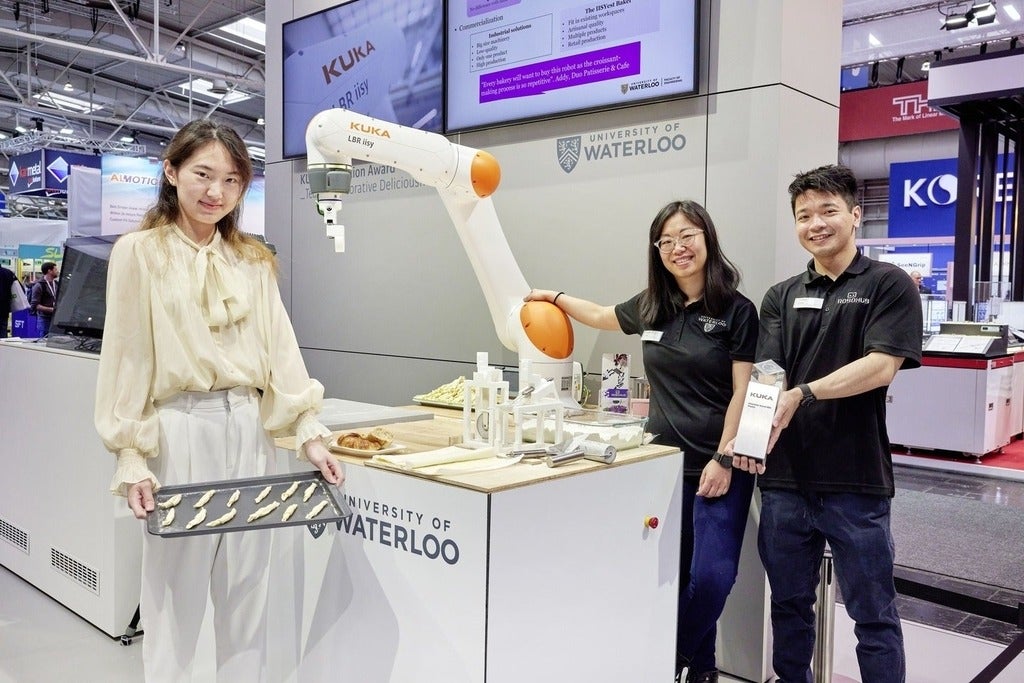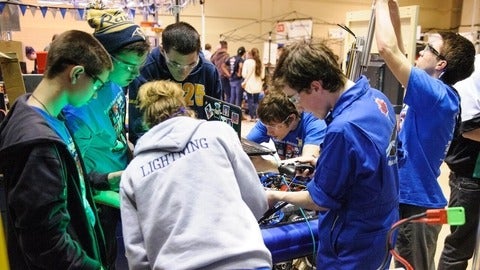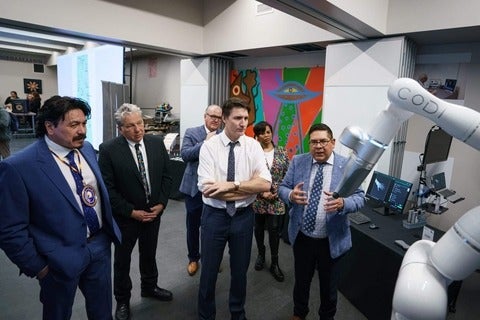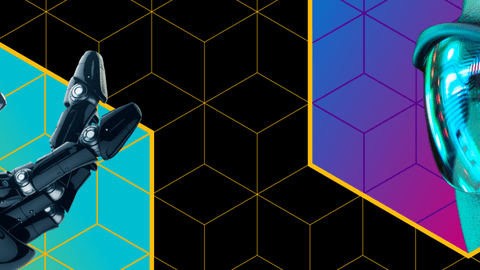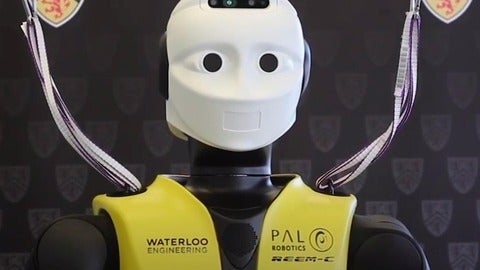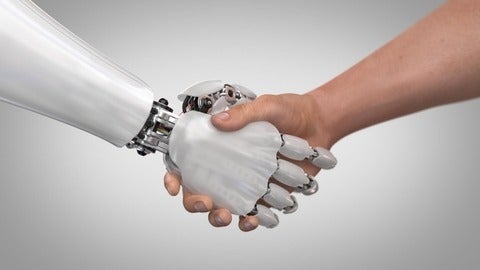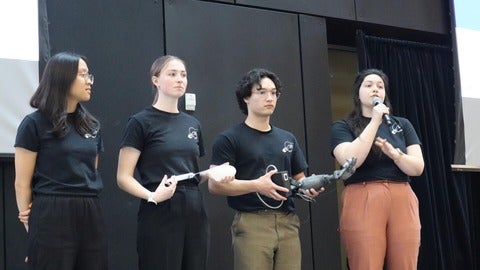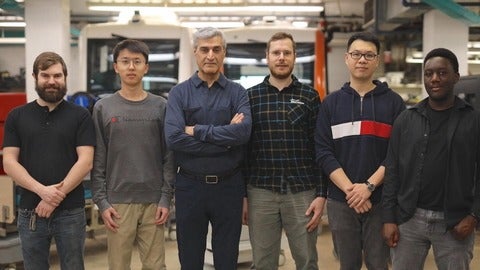Team shines in prestigious international competition
Team Collaborative Deliciousness, led by Dr. Yue Hu and composed of team members Jeffery Lee (MASc in progress, mechatronics) and Cheng Tang, an undergraduate student in computer engineering, was selected as one of three finalists in the prestigious international competition for the KUKA Innovation Award at Hannover Messe, one of the world's largest industrial trade fairs. This year's theme was "Robots for the People."
